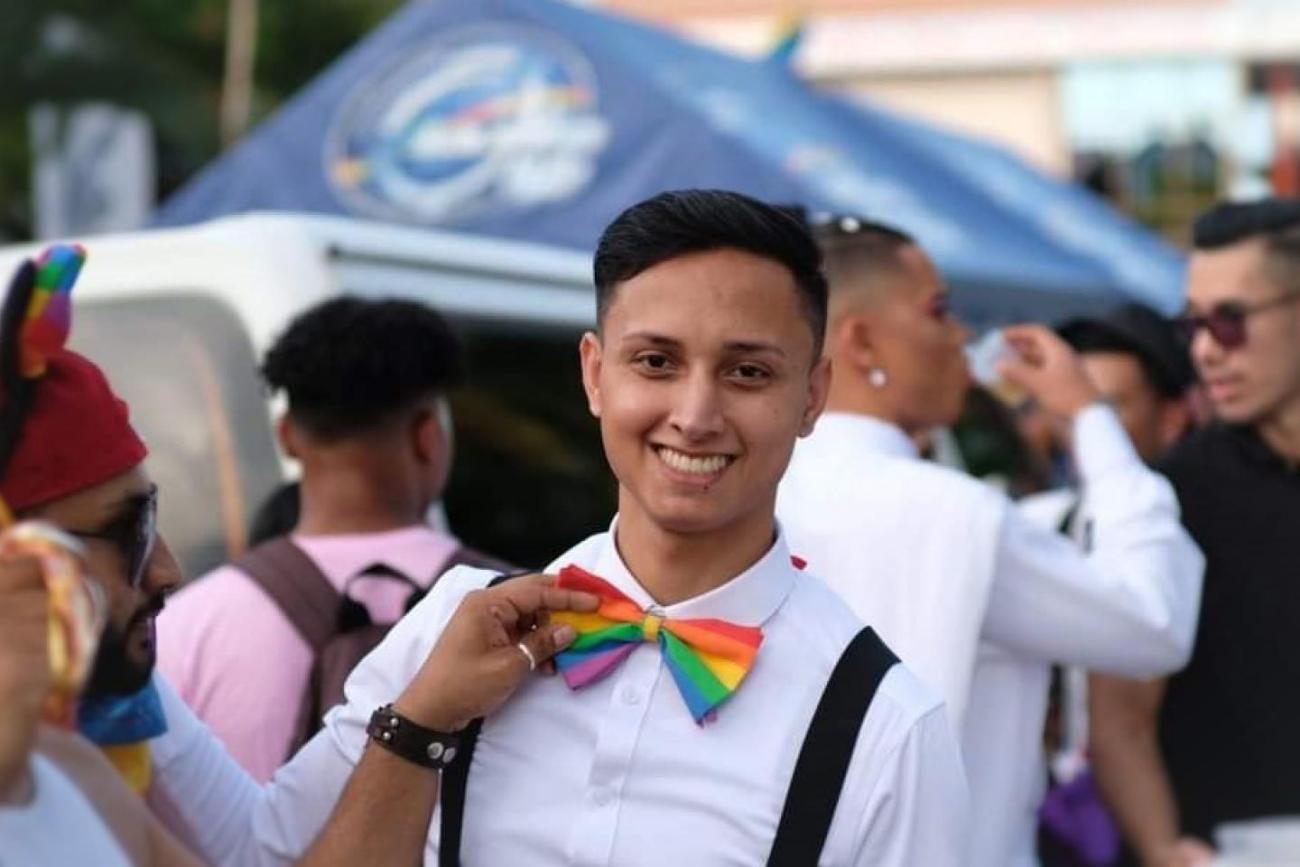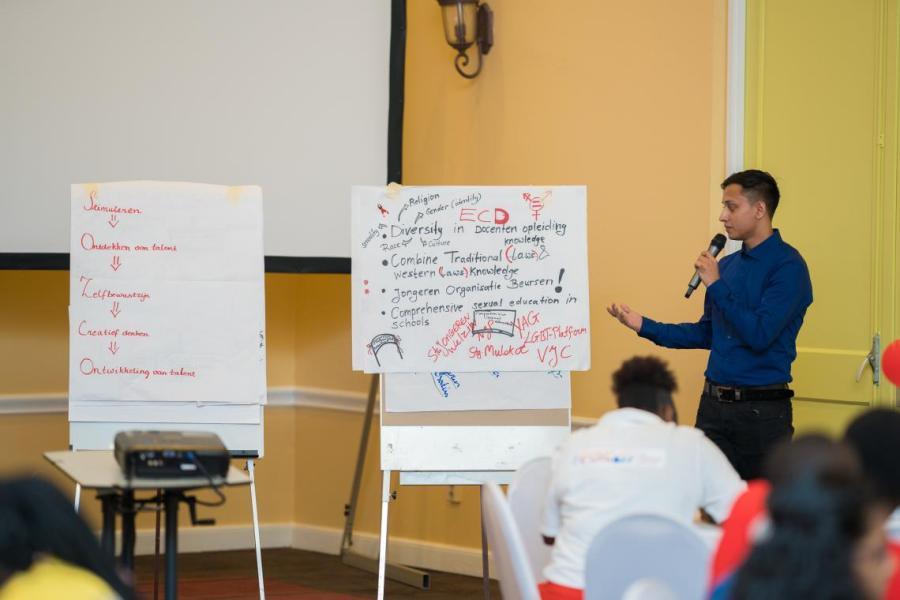FAWAKA with you(th): A writer explores LGBT rights and struggles amid the COVID-19 pandemic in UNICEF's blog on youth

It’s not about special LGBT rights, it’s about equality and basic human rights like everyone else.
The second article of the UN Convention on the Rights of the Child ensures the right not to be discriminated against – in any way. This includes the right to not be discriminated against for one’s sexual orientation or gender identity.
As COVID-19 continues to spread across the world, hundreds of thousands of people have contracted the virus, and every community has been affected. Lesbian, gay, bisexual and trans (LGBT) youth often face additional challenges, which may include staying home with unsupportive family, restrictions on their self-expression, concerns about the future, and lack of access to supportive spaces and people. This can increase their exposure to violence, as well as their anxiety and depression.
This blog is a follow up to the key findings of the Youth KAP survey aimed at getting the stories behind the data. FAWAKA translates to “How are you doing?” in ‘Sranan Tongo’ (English-based creole language).
In this week’s ‘FAWAKA with You(th)’ we will be featuring Mitchel, 24 years old. He is also a medical student at the Anton de Kom University of Suriname and currently the Chair of the LGBT Platform Suriname. We first met Mitchel when he represented the LGBT Platform during the International Youth Day Conference, organized by UNICEF and UNFPA Suriname in 2019
How did you feel when you heard about the first active COVID-19 case in Suriname?
I knew that it would happen sooner or later. So, it didn’t surprise me. As a medical student, I also signed up to help the Surinamese government with contact tracing of people that have been in contact with Covid-19 positive cases. It can be a bit stressful, but I try to balance it by creating some personal time; playing games, exercising at home and learning new skills online. The fact that I can’t meet people in person and socialize does bother me, as I am a very social person.
Why did you decide to join the LGBT Platform Suriname?
Growing up I have always felt this need to stand up for equal rights among marginalized groups in the community. There is still a lot of stigma and prejudice about the LGBT community in Suriname. Many people associate being gay or bisexual with being feminine, but there is a lot of diversity in the LGBT community. As I am also a part of the LGBT community in Suriname, I felt like I could use this opportunity as chair to educate people more and make a difference with my mindset. Some people think that we’re fighting for ‘special’ LGBT rights, but we’re fighting for equality and acknowledgement of basic human rights like everyone else. Eventually, we must put our differences aside and live in harmony as human beings.

What impact do you think COVID-19 has on the LGBT Youth?
As chair of the LGBT Platform, I often get messages from peers when they are facing challenges or seeking advice. The ‘staying at home’ COVID-19 measures have especially been stressful on young LGBT people that are still in the closet; sometimes they don’t feel safe or comfortable in their own home, so they go outside to relax or seek comfort with friends or other peers. Their freedom to express themselves and be themselves was also limited during this period. LGBT youth that have been rejected by family are also forced to stay home; a place where their presence is not always favoured. I would advise young people dealing with these challenges, to use this time to figure out who they are; look for information online and educate yourself a bit more.
What do you miss the most of the ‘pre-Covid’ time?
I am a very social person, so I really miss spending time with my friends and meeting people in general. As chair of the LGBT Platform, I also get the opportunity to meet people from diverse backgrounds with different stories; coming out stories, people that have been rejected by their family and how they deal with these challenges. I enjoy listening to people’s life stories and learning from each other’s experiences. Most young people trust me and feel comfortable discussing these topics with a fellow peer.
At the end of the day we are all humans with many differences, a lot of diversity, that doesn’t mean we should discriminate each other. We are just people with another sexual orientation and gender identity. We have the need and right to love, just like everyone else - Mitchel
What is your message to young people?
Stay calm, follow the official guidelines of the authorities. Take this time do fun things, spend time with yourself, self-reflection is never a bad thing. Be the best you can be. You can always become a better version of yourself.And a message related to LGBT issues? I would like people to educate themselves, at the end of the day we are all humans with many differences, a lot of diversity, however that doesn’t mean we should discriminate each other. We are just people with another sexual orientation and gender identity. We have the need and right to love, just like everyone else.
This story was originally published here by UNICEF Guyana & Suriname.


